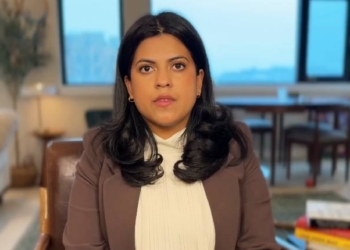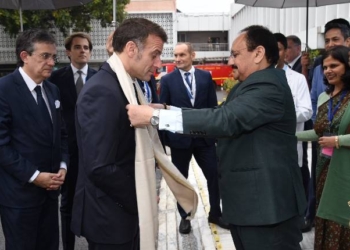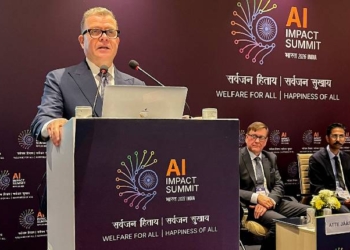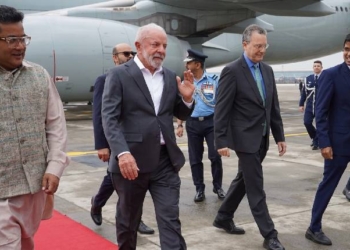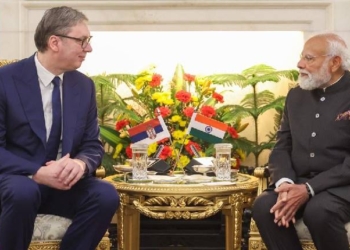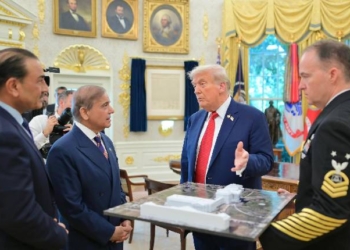London: Pakistan’s newly elected Foreign Minister Ishaq Dar has expressed “serious intent” of his government to reconsider trade relations with India, a move that would hold pivotal value in a change of policy and position since August 2019, when Islamabad suspended its trade relations in response to New Delhi’s decision to abrogate Article 370 and 35A and revoke the special status of Jammu and Kashmir.
The Pakistani Foreign Minister’s first and most significant statement regarding relations with India came during a press conference in London, where he is present to attend the Nuclear Energy Summit.
Dar highlighted the keen interest of Pakistan’s business community in the revival of trade with India, hinting towards Islamabad’s potential and major shift of diplomatic policy and stance towards its arch-rival and neighbour India.
“We will seriously look into matters of trade with India,” he said while answering a question on Pakistan-India relations.
Dar’s statement seems to be part of the newly formed government’s five-year road map focused on opening economic corridors of trade and business with neighbouring countries including India and paving the way towards economic revival for Pakistan.
Dar said that it was the wrong decisions of the Imran Khan-led government that pushed Pakistan on the verge of an economic collapse, adding that the previous 16-month government of Prime Minister Shehbaz Sharif compromised its political gains and took difficult unpopular decisions to save the country from a financial meltdown.
“Our government would implement a five-year road map to put Pakistan on the road to economic progress and bring down inflation to lessen the economic difficulties of the common man,” he said.
Pakistan’s newly formed government under Prime Minister Shehbaz Sharif looks focused on the prime issue the country faces and seems to be ready to open all possibilities of engagement with important neighbouring countries like India.
Dar’s statement has come at a time when India is moving towards elections and relations with Pakistan would certainly be one of the focus of election campaigning of all political contenders.
While Pakistan is sending out a policy-based proposal for the revival of engagement between the two countries; India has been clear on its approach towards Islamabad, maintaining that it wants Pakistan to take action against extremist terror elements, which have played roles in carrying out terror attacks in India.
India has consistently maintained that Pakistan has not done enough to counter terrorism but has done all to safeguard anti-India groups, people and elements on its soil, keeping it as the top priority for any mode of engagement to materialize between the two countries.
On the other hand, Pakistan keeps the Kashmir dispute as the top priority for table talks with government officials stating that there can be no talks if the Kashmir dispute is not on the agenda.
Experts believe that Dar’s statement may hint towards a probable policy shift on the part of Islamabad, but any further movement on it would require more work and consideration from both sides.




